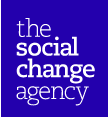Decentralized organizing: More collaboration, less hierarchy
From organisational governance to mobilising and sustaining grassroots movements, what is decentralised organising and how can this approach facilitate collective but efficient decision-making without management hierarchy?
Decentralised organising isn’t just about delegating tasks and responsibilities. It’s about transparency and openness, including how financial decisions are made and how labour is divided. This approach creates a great work ethic:
- Empowering members to do the work they care about, not just what they’re told to do
- Cultivating a culture of trust, collaboration and transparency
- Incentives are aligned because ownership is open to all
Sounds good? We recently caught up with Rich and Nati from Loomio while they were in London and discussed some useful decentralised organising approaches. Here are some changes you can easily implement to start working more collaboratively with less hierarchy:
Establishing “ground rules”
Norms are informal agreements about how group members should behave and work together, e.g. open, honest, inclusive. Boundaries are behaviours that we want to exclude, e.g. no mean feedback, exclusionary decision-making. Collectively, norms and boundaries can also be referred to “ground rules”.
Take time to listen to each member’s perspective. Then, as a group, decide on what your shared norms and boundaries will be. Finally, have this documented and accessible to all members and new members so that expectations are clear and transparent. This way everyone is bound by the same ground rules.
Communication norms
Open but efficient communication is a cornerstone of successful and strong relationships. It can be built by establishing communication norms and collectively agreeing on what communication tools to use for what job. For example:
- Realtime: like whatsapp chat: Informal and quick, it’s about right now.
- Asynchronous: Email or Loomio. More formal, organised around topic. Has a subject + context + invitation. Can take days or weeks.
- Static: Google Docs, Staff handbook, or FAQ. Very formal, usually with an explicit process for updating content
An understanding of when to use different communication tools avoids clogging up communication channels with unnecessary information. Finally, it is important to support members to learn how to use tools and remind each other gently to build habit.
Sharing is caring
Hierarchy habits such as having the same chair for team meetings can discourage other members to feel that they can bring ideas forward, participate in decision making, and take leadership. It is important to be intentional about the behaviours you want to bring to your organisation or network so that members trust each other and feel comfortable working together:
- Intentionally produce a culture of trust and belonging by sharing power, enabling lots of time for discussion, for natural leaders to be reminded to hold back and let others talk,
- Growing collaboration skills with practice through empathy, reflection and communication. It helps to have 5 mins reflection at the end of the meeting to ask people how they think it went – OR send out an anonymous reflection form just after the meeting to see how it performed against the organisational values.
- Distribute ‘care’ labour: make care work visible so that it can be fairly shared – this includes things like organising biscuits to setting the agenda.
Decentralised organising in practice: The Lambeth Portuguese Wellbeing Partnership
In this next section, we feature the Lambeth Portuguese Community Wellbeing Partnership (LPWP), a grassroots community network of over 40 local groups and community members. Bringing together organisations and people from across the health, social, charity and voluntary sectors to listen and work together, the LPWP is an exciting example of working in partnership through decentralised organising to help the Portuguese speaking community live healthier lives and to remove the barriers they face accessing health services. The partnership are keen to work towards adopting a decentralised organising approach and are on a continuous journey to work towards greater transparency and collaboration to create change.
Their successes and impact so far include
- A Breakfast / Homework Club run in conjunction with a Portuguese Café, a local school, educational charities and the NHS.
- A GP surgery and a voluntary sector organisation carrying out joint assessments of frail and vulnerable patients, with the voluntary community liaison officers providing care-coordination and links into social support.
- End of life and Latin American disability charities working together to modify advance care planning templates, empowering those at the end of life to make the decisions that are important to them.
- Culturally relevant patient leaflets, education videos and an NHS ‘Welcome Brochure’ in Portuguese, informing patients of their NHS rights and self-care options.
- A children’s charity working with scientists, to provide children from vulnerable backgrounds experiences working in science in universities.
The LPWP commissioned the Social Change Agency to support developing a strategic and decentralised organisation framework that will ensure that the partnership can play an active role in helping people with multiple long-term conditions live fulfilling lives for longer. It was a great pleasure to meet and interact with some of the organisations and individuals within this partnership, their passion and commitment to working together through values that include inclusivity and trust to improve the wellbeing of Portuguese speakers in Lambeth is truly inspiring!
If you want to focus was on moving towards flatter hierarchies, grassroots decision-making, and letting go of traditional hierarchies, then get in touch to find out how we can help.

The Social Change Agency is an expert team of strategy consultants, campaigners, communicators, and governance geeks. They’ve launched powerful movements, built innovative networks and led groundbreaking campaigns - their expertise spans every aspect of social change.
originally published at The Social Change Agency

Network Weaver is dedicated to offering free content to all – in support of equity, justice and transformation for all.
We appreciate your support!
donate in the box above or click here
